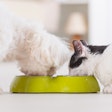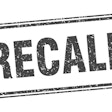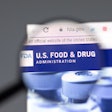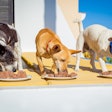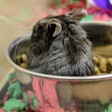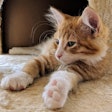.jpg?auto=format%2Ccompress&q=70&w=400)
Making quality petfood begins with quality ingredients and production methods. By continually keeping up with technological advances, Vobra Special Petfoods BV has brought itself into the forefront of the dry petfood production arena in northern Europe. Vobra is part of the Vobra Group and is an independent family-owned operation headquartered in the Netherlands.
The company was founded in 1932 by Piet van Krieken. Initially, only livestock feeds were produced. In 1963 Piet's son, Gerard, took over the company and changed the company name to Vobra (Voederfabriek Oost BRAbant). The third generation is currently running the company (as of 2000). Vobra is focused on providing superpremium quality and is trying to gain a good foothold in the high-quality petfood market. Its branded products are sold in pet shops and professional channels. Over 500 private label product lines are manufactured for over 100 clients worldwide. The company exports product to 22 countries across Europe and beyond (see "Business basics" box).
Production facilities
The company has three production facilities: two located in Loosbroek and one in Veghel, Netherlands. van Krieken's plant in Loosbroek was first established in 1932 as a flour mill. Beginning in 1973, the first dog food was produced at this site. In 1984 a new plant was built. The total current capacity of this plant is approximately 18,000 tons of extruded petfood per year. A second plant in Veghel with warehouse facilities was added in May 2002 to meet growing demand. In 2006, the Wielco plant, also located in Loosbroek, was acquired by the Vobra group.
I recently toured the Vobra five-level facility in Veghel and was able to learn more about the latest technologies that have been implemented here (see sidebar). In the beginning stages at this plant, there was one production line producing conventional petfoods. Recently, they set up a second production line with stainless steel components. According to Vobra CEO Frank van Zutphen, there are currently three shifts per day working at the Veghel plant. The total production capacity is 35,000 tons of extruded petfood per year.
Veterinary diets and private label, too
Vobra produces its own branded petfood products as well as many private label lines for clients worldwide. Its own superpremium dog and cat foods carry the brand name Casa-Fera. The premium products are Carocroc and Carocat. Vobra also produces premium quality dinners under the brand name Trixi.
Most recently, Vobra developed a veterinary/therapeutic line of petfoods for dogs and cats with health problems called Sanimed. With this line, Vobra focuses on the evidence-based production of petfood, taking into account available scientific information. Emphasis is put on the production of petfoods that contribute to the prevention or treatment of disease in the case of veterinary diets.
The development of these products was done by Vobra's head of R&D and former Utrecht University professor, Dr. Anton Beynen. The Sanimed foods are only available by prescription from a veterinarian. The new therapeutic diets are performing above expectation so far, according to Vobra. A large number of countries, including Asian countries, have apparently shown serious interest in importing the Sanimed veterinary diets.
Private label production is an important part of Vobra's business. It offers tailor-made production of relatively small batches of dog and cat food and provides its customers a full-service concept. Vobra strives to be known for high-quality private label products, as well as flexibility and partnership, allowing its clients the ability to influence the formulation of their products.
Vobra and a Serbian company, Veterinary Institute Subotica, have engaged in a joint venture called Activex. In Serbia, Activex produces extruded dog and cats foods under the brand names Dog's and Cat's Favourite. Vobra does not produce pet treats and does not have any plans to do so in the future. Vobra's joint-venture partner in Thailand, World Synergy Trading, currently produces pet treats.
The future outlook for Vobra is strong, with promising sales of its own brands in the Netherlands (up 10% in the first six months of 2007) and a further increase in exports expected. Vobra also expects to become a significant player in the veterinary therapeutic diet market. The recent establishment of the joint ventures in Serbia and Thailand is expected to open up further markets for Vobra.
Vobra's opportunities lie in consolidation of its evidence-based production of petfoods with its long-term partnership with private label customers. The most difficult challenge in the future will be the advancement of controlled growth, according to the company.







